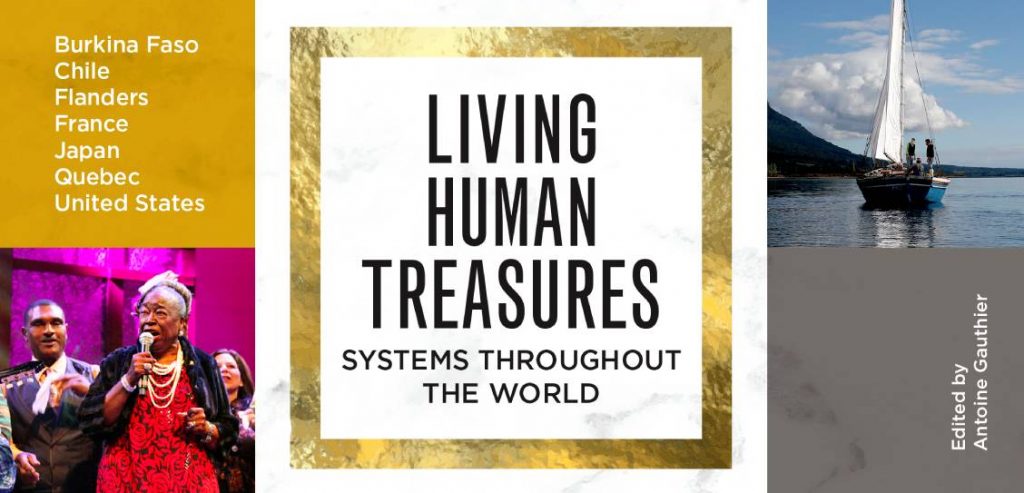Accueil/Actualités et annonces/ Lancement des actes du colloque international
Les actes du colloque sont maintenant disponibles
***** ENGLISH VERSION BELOW *****
Consulter la publication (PDF)
Le colloque international sur les systèmes de Trésors humains vivants dans le monde s’est tenu le 30 mai 2020, à l’occasion du dévoilement de la première cohorte du programme national des Maîtres de traditions vivantes, piloté par le CQPV. Ce rassemblement virtuel a permis aux représentants de sept États de discuter des particularités associées à l’implantation de cette initiative: Japon, États-Unis, Chili, Burkina Faso, France, Flandre (Belgique) et, bien sûr, le Québec (Canada).
La publication bilingue des actes témoigne de la richesse des actions prises dans les pays qui participent à cette aventure. Le colloque a mis en lumière les différentes formes que peut prendre un tel dispositif au sein des États participants – tantôt porté par une institution publique, tantôt par une ONG –, en insistant à la fois sur les bons coups et sur les écueils rencontrés.
Le CQPV remercie le ministère de la Culture et des Communications du Québec pour son soutien au programme des Maîtres de traditions vivantes, qui a permis la tenue de ce riche forum de discussion.
The proceedings of the conference are now available
The international symposium on Living Human Treasures Systems throughout the World was held on May 30, 2020, on the occasion of the unveiling of the Masters of Living Traditions’ first cohort, a national program led by the CQPV. This virtual gathering allowed representatives of seven States to discuss the particularities associated with the implementation of this initiative: Japan, United States, Chile, Burkina Faso, France, Flanders (Belgium), and Quebec (Canada) .
The bilingual publication of the proceedings testifies to the richness of the actions taken in the countries participating in this adventure. The symposium shed light on the different forms that such a mechanism can take within the participating States –sometimes carried by a public institution, sometimes by an NGO–, by emphasizing both the successes and the pitfalls encountered.
The CQPV would like to thank the Quebec Ministry of Culture and Communications for its support for the Masters of Living Traditions program, which made it possible to hold this important discussion forum.



